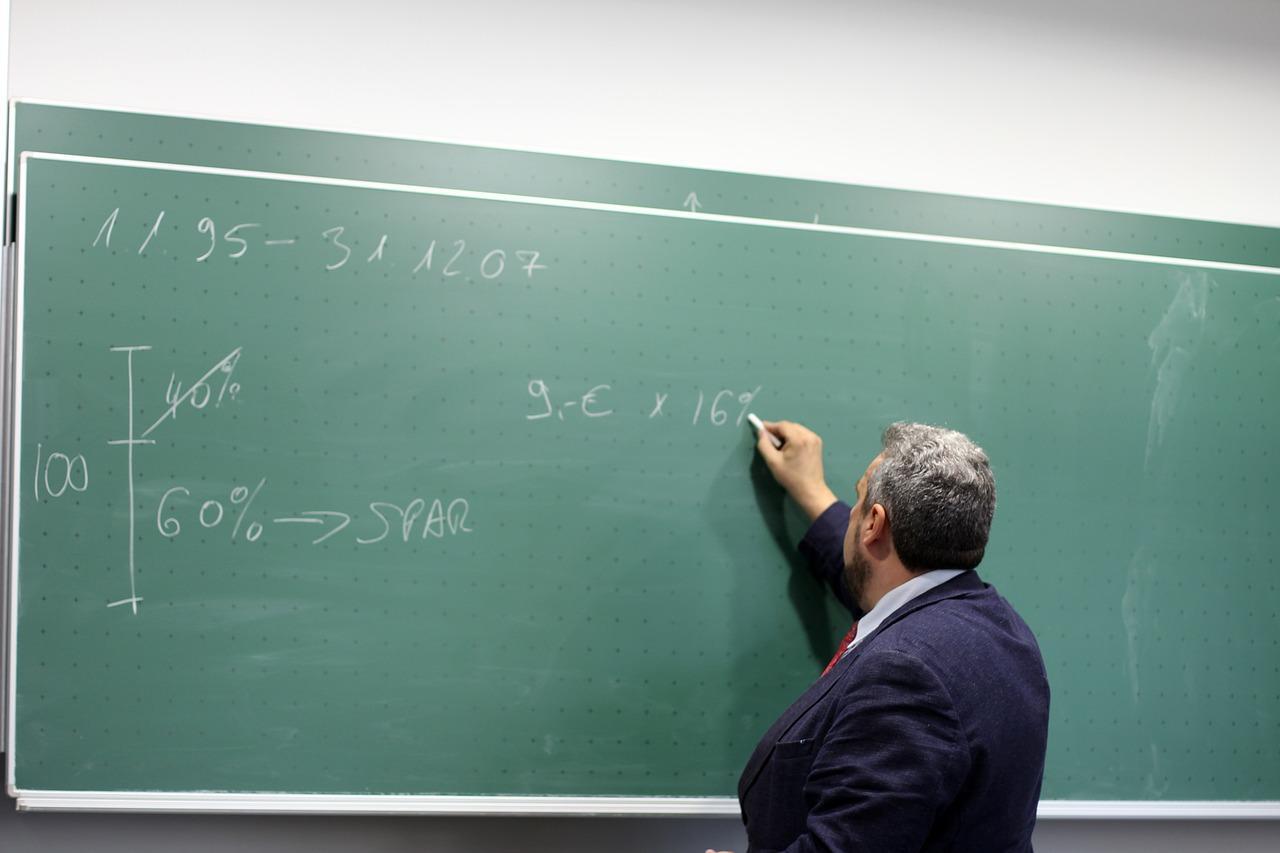Mathematics is commonly referred to as the language of the universe. It’s an essential field that enables us to comprehend the world and the universe. Throughout history, numerous mathematicians have contributed to the advancement of this field, which, in turn, has facilitated technological growth. Surprisingly, mathematics is used in various sectors, including information technology, science, computer science, architecture, and more. So why is mathematics referred to as the language of the universe? It helps us decipher the universe by using complex concepts and theorems. By identifying these patterns, we can understand the relationships that exist in our world.
It is no surprise that mathematics is a field and a skill that is highly in demand, and those who possess this skill and knowledge make themselves highly marketable. We are taught mathematics from a very young age because of its benefits. Simply put, mathematics is intertwined in our daily lives whether we realise it or not.
You might be considering pursuing a career in mathematics but are unsure. In this article, we will discuss pursuing a career in maths in depth and what you can expect from it.

Pathway to a Career in Mathematics
Many people believe that pursuing a career in mathematics requires exceptional intelligence. However, this is not entirely true. While having a high IQ may help, it is not a prerequisite for a career in mathematics. To embark on a mathematical career, all that is needed is a strong commitment and hard work.
First, ask yourself this: do you like maths? Do you find learning maths fun and fulfilling? If your answer to these two questions is yes, then a career in mathematics might be just the thing for you.
To start a career in mathematics, you must first do well in your maths subject in school. You can pursue a mathematics degree with the good results you obtain in school. A student can consider three main mathematics groups: theoretical, applied, and pure mathematics. Let us explore these three categories further so that you get a better understanding of them, and consider engaging with resources for mastering maths.
Theoretical Mathematics
The study of abstract mathematical structures is what theoretical mathematics is all about. The main purpose for this is the advancement of our understanding of mathematics. An example of theoretical mathematics is the numbers theory. The numbers theory is one of the essential fields within mathematics that has impacted our daily lives. The numbers theory is known to be a complicated and complex theory in mathematics. Most of us are unaware of how the numbers theory affects our daily lives. An excellent example of how the numbers theory has impacted our lives is encryption. This theory is vital in ensuring secure communication in our devices and such.
Applied Mathematics
Applied mathematics is used and applied to our daily lives to solve real-life problems. Applied mathematics is used in various fields such as medicine, architecture, biology, business, finance, accounting, computer science, physics, etc. Applied mathematics is essential for advancing our lives, technology, and everything around us. It uses analysis and pattern recognition, which is highly valuable. Examples of applied mathematics are probability, calculus and statistics.
Pure Mathematics
Pure mathematics is a part of theoretical mathematics. This subset of theoretical mathematics concentrates on discovering new mathematical concepts that might not have any practical use at their point of discovery. It has been said that pure mathematics is the most challenging mathematics out there. One of the main reasons that makes pure mathematics very difficult is that it requires highly analytical thinking as it goes deep into abstract mathematics.
Career Opportunities in Mathematics
As you might already know, mathematical skills are in demand these days. A person who has mathematical qualifications and skills has many opportunities to pursue. Let us look at some of the career opportunities one has with maths qualifications.
Actuary
An actuary is a person who uses mathematical skills to deal with the measurement of risk and uncertainty. Their job is to analyse the financial costs of risks that a company has by using statistics and mathematics. Actuaries will then develop policies for their respective companies to help them minimise those risks. They are analytical people who tend to work in the insurance industry but are also found in the banking industry and corporate finance. In most cases, actuaries are hired by big companies, especially financial institutions. The average salary of an actuary in Singapore is approximately $ 6,900 per month.
Accountant
Another promising career prospect for someone with exceptional mathematical skills is an accountant. Accountants and auditors are jobs one might consider if they have an aptitude in mathematics. There are many branches in the line of accounting, such as financial accountants, forensic accountants, taxation, corporate finance and even financial reporting. What exactly does an accountant do? An accountant is a person who analyses, reviews and prepares a company’s financial statements. This also includes tasks such as preparation of tax returns, budgeting, planning, and forecasting that will be used by the companies in the planning and execution of business. The average salary of an accountant is $4,200 per month in Singapore.

Statistician
Another excellent career choice is statistician. A statistician is a person who works with data while finding practical solutions to the problems faced. They analyse and interpret data for businesses and help them with important decisions. There are many fields a statistician can go into, such as agriculture statistics, business statistics, and economics statistics. This job boasts a high salary and is one of the few that offers low stress and an outstanding work-life balance. In Singapore, a statistician earns approximately $14,000 per month.
Employability Skills to Cultivate
In addition to having mathematical qualifications to make you a desirable candidate, you should also cultivate some skills that will add to your demand as an employee. Listed below are some of the skills you should work towards, and you can even explore other career options in mathematics.
Quantitative Reasoning
Quantitative reasoning is when you use basic maths to analyse and interpret real-world data and draw conclusions from them. Quantitative reasoning is a most sought-after skill, especially in management-level jobs. The reason this skill is highly in demand is because this skill helps with decision-making. It does not matter if you are in a career relating to mathematics or even academics. This skill is valuable and necessary for daily decision-making.
Problem-Solving Skills
Problem-solving skills are invaluable. It is a skill required for managerial and all senior-level roles. In business, problem-solving skills are highly sought after as they not only make the company money but also save the company money. For example, when you think of ideas and ways to make a job more manageable, you indirectly save the company’s cash by lessening the time spent on a task. Instead of having ten people work on a task, by making it easier and automating a job, you need only five people to work on a task. The remaining resources could be used for other tasks and projects.
Teaching Mathematics
One of the best things a person passionate about mathematics can do is go into the line of teaching. Teaching can be a very fulfilling career as you are part of shaping the minds of tomorrow. There are a lot of professionals who work in the corporate world who eventually go into teaching because they find it more rewarding.
It is a known fact that mathematics encourages students and kids to think outside of the box. Learning mathematics improves their cognitive and analytical skills, which is extremely important as they become valuable contributors to society.
What can be more satisfying than being a part of what creates the future generation?

You can consider teaching primary students. This enables you to open their minds to maths and influence their thoughts on mathematics. Help them link maths with fun and encourage them with their maths revision. Or you can opt to teach university-level maths. This will enable you to shape your career trajectory and nurture the minds of young people interested in mathematics.
More often than not, students need a guiding, patient hand to help them to understand and learn mathematics. It’s only then they will grow to have the passion to learn. You get the opportunity to help them understand the maths syllabus and ace their maths exams.
As a maths professor, you also get the opportunity to conduct research and participate in projects that can help your fellow mathematicians. You could even contribute to the legacy of maths!
On average, a maths teacher in Singapore earns $8,000 per month. A professor, on the other hand, can earn anywhere between $ 13,500 to $21,000. This is a very lucrative career while shaping the minds of the future generations. Are you curious about the different salaries of a maths teacher in Singapore? Click here to find out!
Instead of being a maths teacher in an organisation, you can consider being your boss and starting maths tuition. You can opt to provide online maths tuition or even face-to-face lessons. Superprof is one of the best platforms you can start your own tutoring services. As a tutor in Superprof, you get to earn money as your primary or side income. Since Superprof is a platform that connects students with tutors worldwide, teaching students from Singapore and other places can be a great experience and prospect.
Do you need help in learning maths in Singapore? Check out How to Find a Mathematics Teacher in Singapore.
Summarise with AI:














